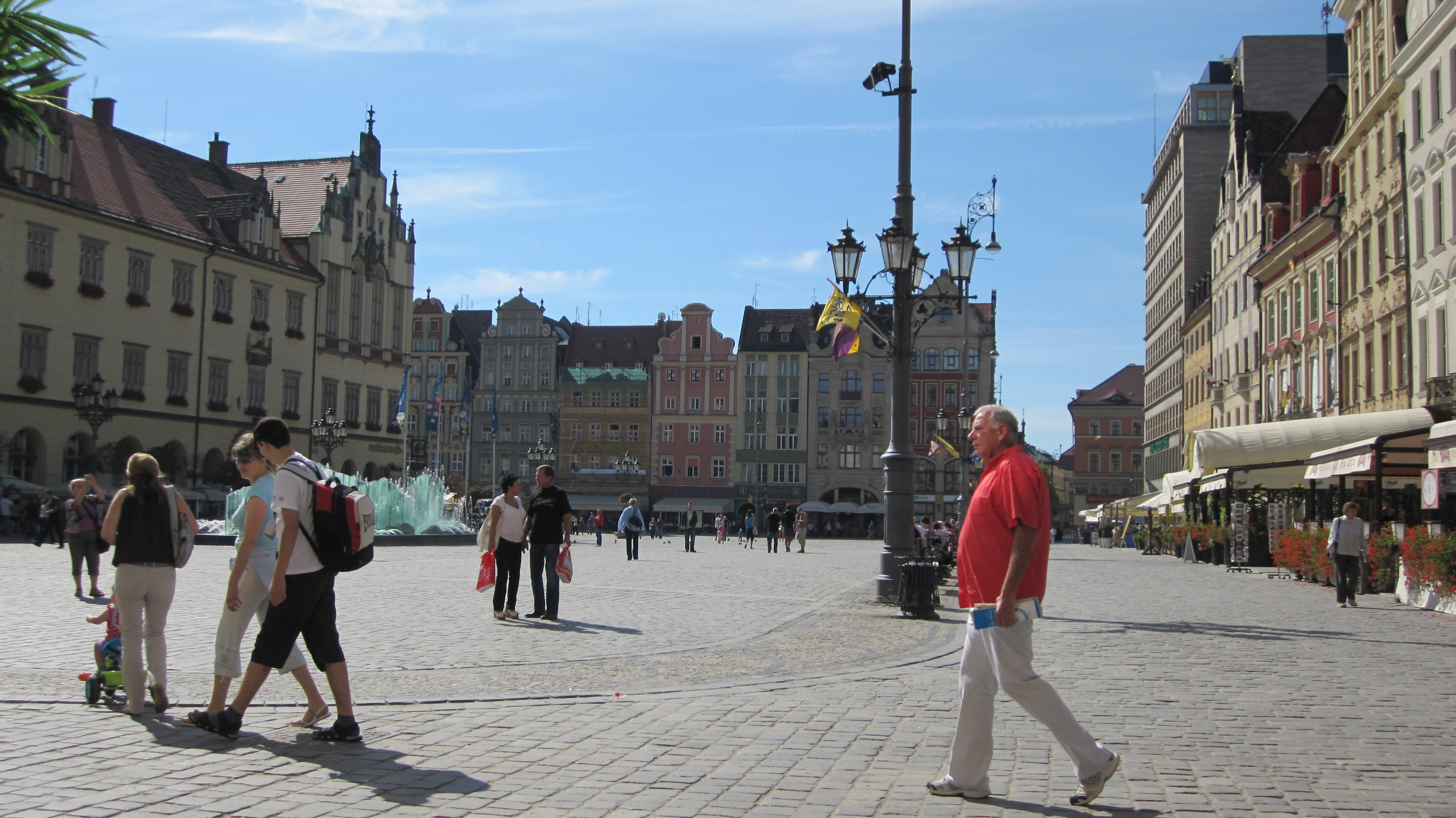Yesterday, I was in a panel on the European Culture Congress here in Wroclaw, Poland. The title was Wikianarchy, and the topic — as usual — the copyright monopoly.
Happily, there was no representative from the copyright industry there to dish out their usual fundamentalist views, calling anybody who questioned them a heretic and expecting that to settle the discussion. Rather, the panel (recorded video not up yet) consisted of five people who were gradually more sceptical of the copyright monopoly — and I wasn’t even the most sceptical one.
The first was an executive from a large, well-known TV channel. His solution was to let all the copyright monopoly holders decide how others were allowed to distribute their works.
The second, a professor from Barcelona, opposed this wildly. “That attitude of denial is what got us here in the first place.” Instead, she proposed making the ISPs liable for what they transmit — abolishing the messenger immunity — and even though the monopoly holders would not have a say whether their works were transmitted, she still insisted on having ISP-level automated censorship, preventing anybody from transmitting without authorization. She was also in favor of so-called cultural flatrate, which is (also) a terrible idea.
She insisted that this had nothing to do with limiting free speech. It’s been a long time since I saw an audience so openly hostile to a panelist — several in the audience stood up and told her in agitated voices how wrong she was on this point.
The third was also a professor, but from Poland. He had a more cautionary approach, describing the current laws as problematic, and saying plainly that “more copyright doesn’t work, we all know that”.
I was fourth. My approach for this panel was that I don’t care if some people don’t make money the way they want, entrepreneurs still don’t get to dismantle civil liberties to boost their profits. (I wrote a column for TorrentFreak on the topic, which can be found here.) I outlined that our parents could send letters without being tracked and the mailman was never responsible for them, even if directly illegal; I was applauded when I pointed out that it is perfectly reasonable to demand that our children have the same rights as our parents and grandparents.
When our parents sent a letter in the mail, nobody was allowed to open it to check if it contained a copied poem, which would infringe on the copyright monopoly. When our parents sent a letter in the mail, they and they alone determined if they identified themselves as sender on the outside of the envelope, inside the envelope, or not at all. When our parents sent a letter in the mail, the mailman was never held responsible for the contents of that letter, regardless of if the contents infringed a particular copyright monopoly or were even downright illegal.
(On this, the first professor interrupted and pointed out that the mailman doesn’t make money on distributing the letters. I have no idea how she came to that conclusion; they aren’t exactly volunteers.)
The fifth person was a professor from Amsterdam, who was the most outspoken of all, claiming that the copyright monopoly is censorship, pure and simple, as it prevents art from being created and songs from being sung. While he is formally right about this, I found the rhetoric somewhat weak — saying this doesn’t make people directly understand why the copyright monopoly harms society, unless you’ve already done quite a bit of thinking on the subject. It doesn’t get the penny to drop. Still, it was nice to see that I was not the most hardline opposer of the monopoly.
The conference as such (European Culture Congress) was huge — it is part of the Polish EU presidency and there were ministers and security at ridiculous levels everywhere. This panel was held in a room for 800 people, and was moderated by Ruben Maes, who handled the diverging viewpoints and engaged the audience beautifully.




Unless the professor from Amsterdam has changed his tune — see http://gondwanaland.com/mlog/2005/10/18/imagine-usufruct/ — there wasn’t a total abolitionist represented. Sad.